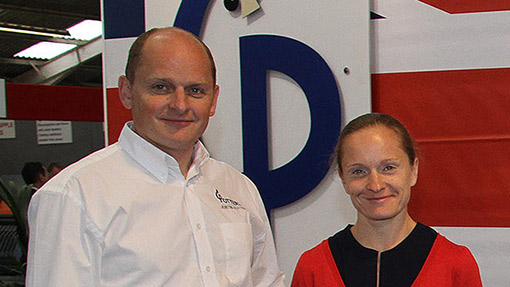Potters Poultry celebrates 50 years in business

Equipment manufacturer and pullet company Potters Poultry is celebrating its 50th year in business.
Started by William Potter in 1964, the company has evolved to become the only UK manufacturer supplying laying and rearing equipment worldwide.
The Warwickshire-based company also rears more than two million birds a year – trading as Potters Pullets – on its owned and contracted rearing sites.
See also: Potters Poultry multi-tier system on Welsh farm
The company really took off when sons Ron and Ken Potter joined their father William in what was a general farming business in the 1960s. They saw an opportunity in rearing pullets but, not satisfied with the available rearing cages, soon started to design and manufacture their own.
Today, the company is run by Ron Potter’s own children – Olivia (pictured above right), who is in charge of pullet rearing, and Justin (above left), heading the equipment division.
“From cages in wood and wire, to the earliest electronic controls to egg-collection and feeding systems and metal cages, if Potters saw a need, we designed and manufactured equipment to meet it,” said Justin, who after studying agriculture at Harper Adams gained experience of poultry farming in South Africa.
“We were also one of the first to provide our customers with farm history packs, detailing the birds’ progress throughout the rearing period,” added Olivia, who returned to the family business after studying at Manchester University.
She explained that, while the two sides of the business are run separately, they also work in tandem if a customer requires pullets, housing, equipment and/or aftercare.
In the past five years, Potters has also moved into overseas markets.
“Our first exports were to South Africa,” said Justin. “And, while the UK market remains a leading priority, we are now expanding in the USA, South America, the Middle East, Australia and Asia – markets where there is tremendous scope.
“Until now, many of these markets have relied on manual labour. They are now finding that our automatic equipment improves both egg quality, production results and profitability.”
